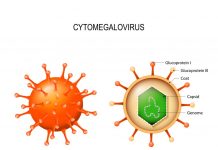Cancer is not just one disease. Cancer is an umbrella term for over 100 different diseases characterised by abnormal and uncontrolled cell division. Some of the more common cancers include breast cancer, prostate cancer, lung cancer, colon cancer and bladder cancer.
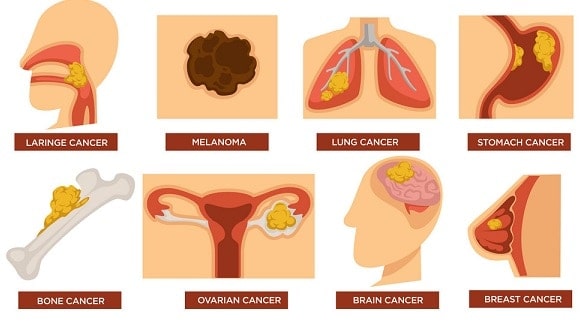
What are Cancer Cells?
Microscopic cells are the building blocks of every tissue and organ in the body, and their reproduction is essential for growth and repair. Normal, healthy cells divide and multiply to replace old and damaged cells. However, sometimes the process of cell division malfunctions and spirals out of control.
The cells begin to divide in an uncontrolled manner, and produce excess tissue consisting of a mass of cancer cells. A cancerous mass is known as a malignant tumour.
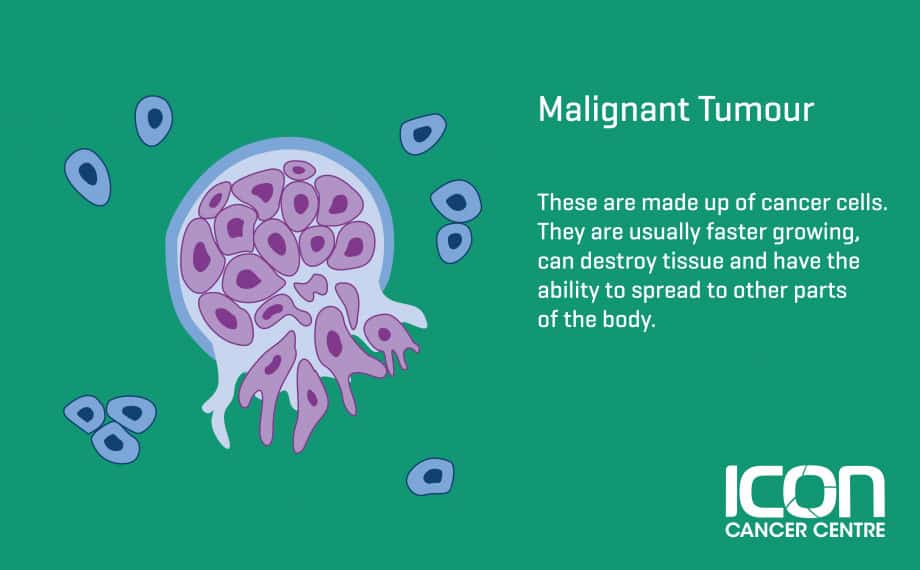
So why does the process of cell division sometimes go wrong? The answer lies in the genetic information contained within each cell. Each cell contains genes, which are the control centre for cell division. The genes control precisely how a cell functions, how many times it reproduces and when it dies. When the genetic material inside a cell becomes damaged, it is no longer able to control the cell’s growth and behaviour.
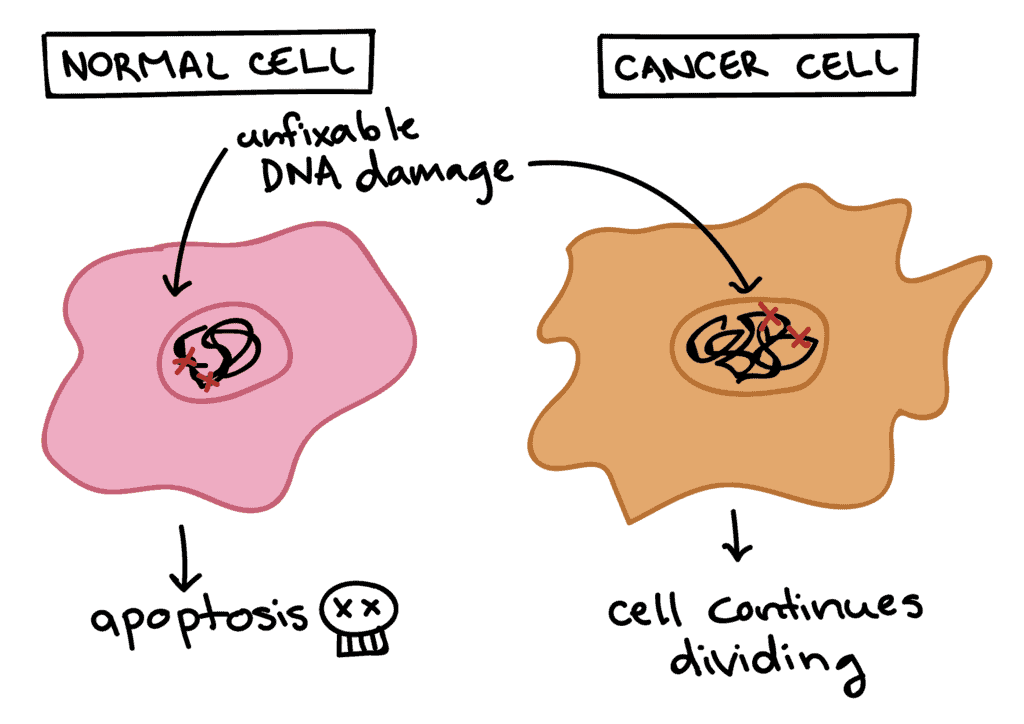
Malignant Tumours and Metastasis
It should be noted that not all tumours are malignant. Many tumours consist of non-cancerous cells and are considered to be benign. Benign tumours, although sometimes large and needing removal, are not generally life threatening. Malignant tumours, however, penetrate and destroy the tissues and organs surrounding them.

If a malignant tumour is left untreated, cancer cells may break off and travel around the body via the blood or lymphatic system. The cancer cells then form secondary cancers in other parts of the body, which are known as metastases. For example, breast cancer is known to spread to the brain, lung, liver and bone.
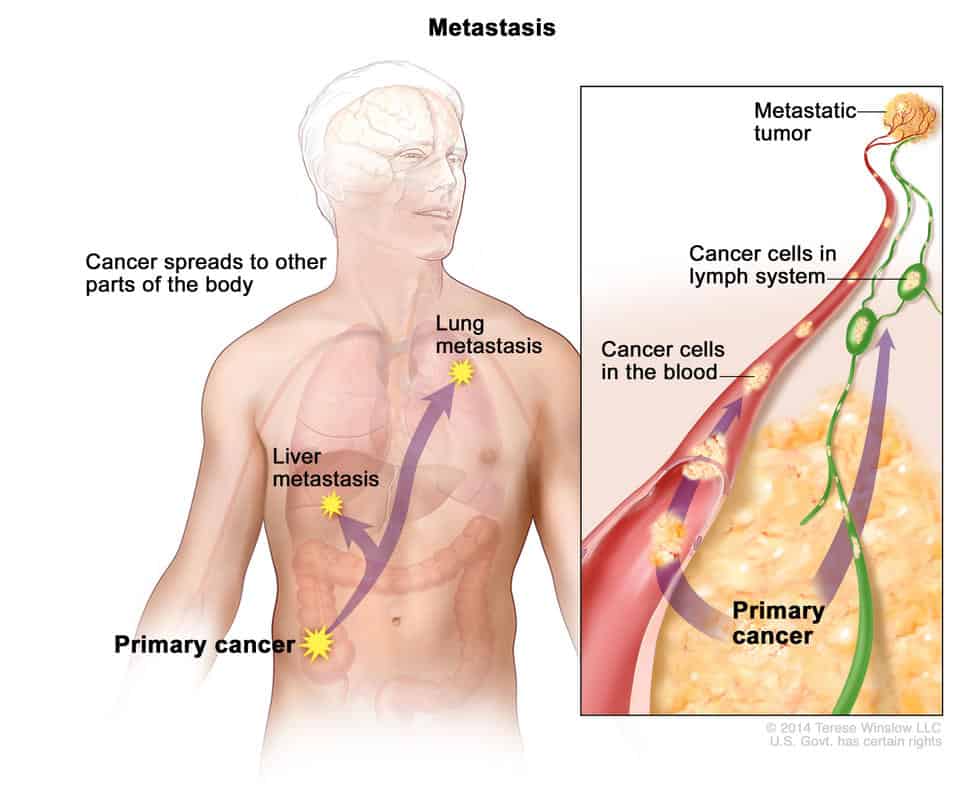
The process of spreading is known as metastasis, and can occur slowly over a number of years, or very quickly within weeks.
Different Types of Cancer
Cancer can affect any part of the body, but each type of cancer is classified according to the type of tissue in which it originates. The four major types of cancer include sarcoma, leukaemia, lymphoma and carcinoma.
- Sarcomas – Sarcomas originate in connective tissue such as muscle or fat (known as soft tissue sarcomas), or in bone and cartilage.
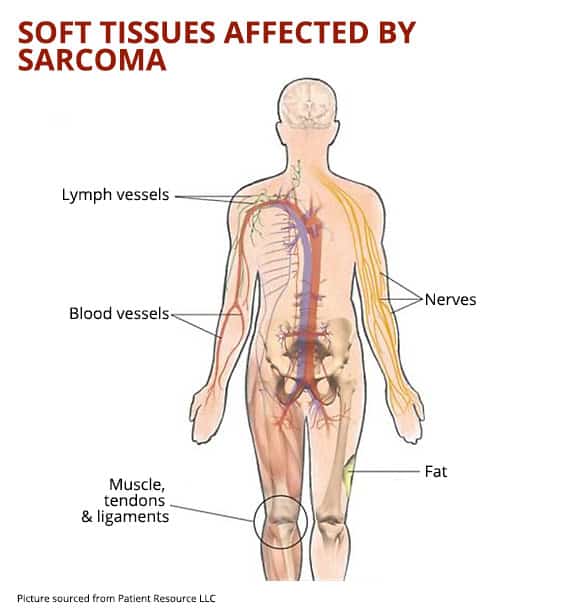
- Leukaemia – Leukaemia is a cancer of the blood cells, originating in the bone marrow (where blood cells are made).

- Lymphomas – Lymphomas are cancers of the lymphatic system. The lymphatic system filters bodily fluids and fights infection.
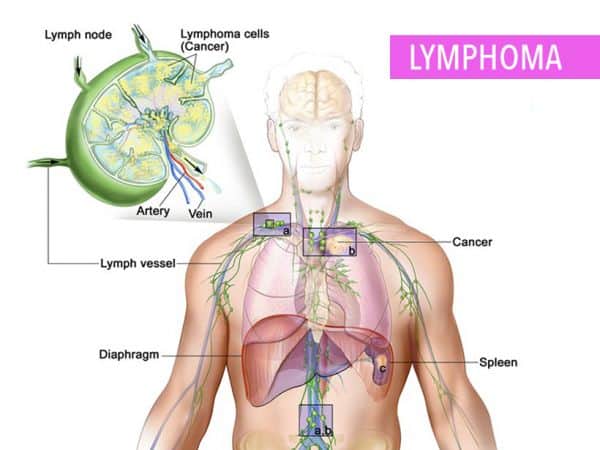
- Carcinomas – Most cancers are carcinomas, which arise in the body’s epithelial tissue. Carcinomas commonly affect organs or glands such as the lungs, colon, bladder, breast or prostate.
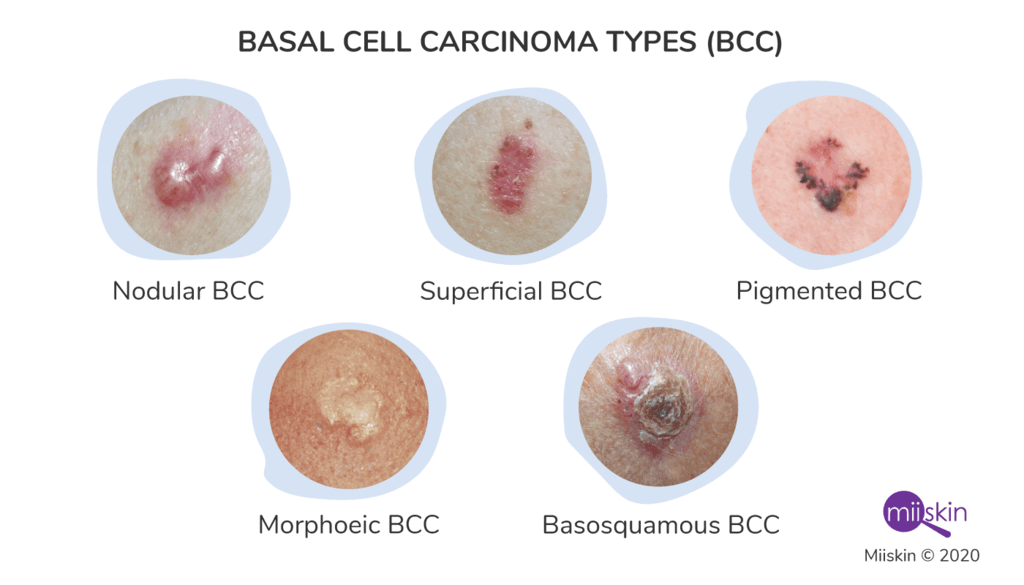
Cancers vary in many ways, such as their speed of growth, the likelihood of metastasis, the symptoms that are experienced, and the treatments available. Depending on the type of cancer, treatment may be recommended in the form of surgery, chemotherapy or radiotherapy.
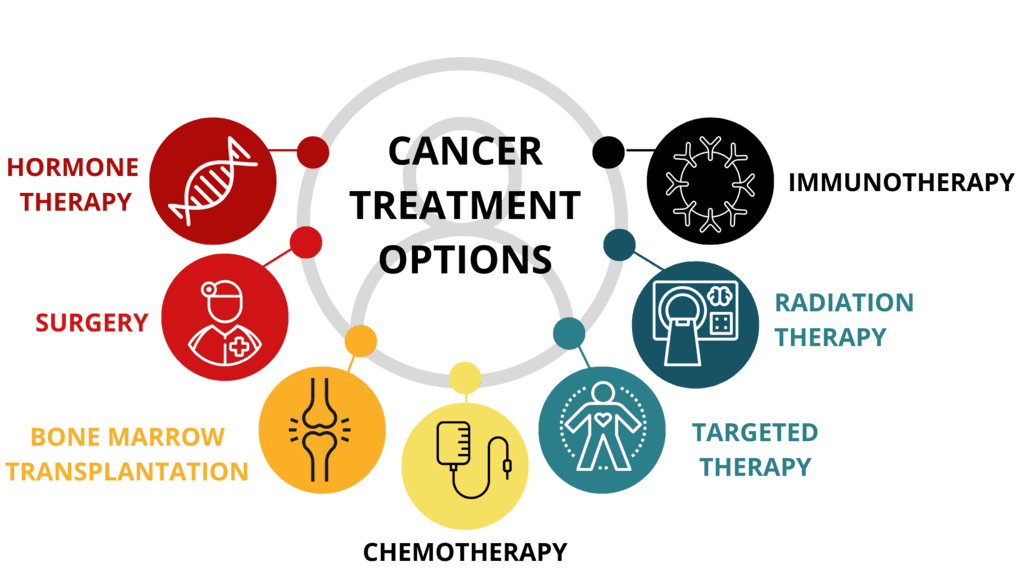
It can be helpful to have a list of basic medical terms which often arise in discussions about cancer. Readers may find the article ‘Cancer Terms and Definitions’ useful.








